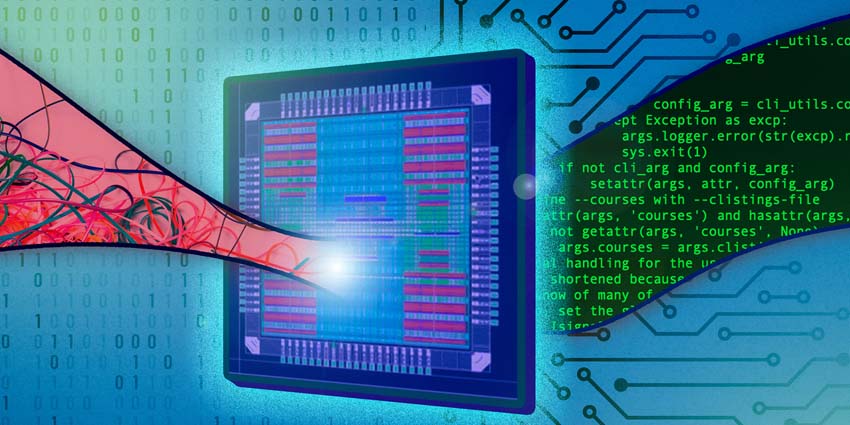MIT, Boston University, and Maynooth University researchers have produced a silicon chip which could potentially boost efficiency for virtual and augmented reality (VR/AR), gaming, 5G infrastructure, and connected devices, it was reported earlier this month.
The researchers created the Guessing Random Additive Noise Decoding (GRAND) algorithm to decode cryptic coding with higher accuracy, “regardless of its structure”, MIT said.
The innovation will remove the need for multiple decoders, which require complex mathematical computations, and can process large volumes of data with minimal turnaround times.
Scientists revealed the research at the recent 2021 European Solid States Device Research and Circuits Conference (ESSCIRC-ESSDERC) this month.
Noise and Data Transfer
Noise alters and potentially degrades data transferred over the internet, and requires coding and decoding algorithms to preserve the original information.
GRAND has streamlined multiple hardware components used to code and decode data algorithms into a single tool capable of handling code structures.
The new device guesses noise by generating noise sequences as they would potentially occur and cross-references the patterns with codewords in a codebook.
According to Muriel Médard, MIT Researcher, GRAND was similar to a troubleshooting programme,
“If someone brings their car into the shop, the mechanic does not start by mapping the entire car to blueprints. Instead, they start by asking — what is the most likely thing to go wrong? Maybe it just needs gas. If that does not work, what’s next? Maybe the battery is dead”
A GRAND Solution
MIT’s GRAND semiconductor uses three tiers to process noise, with the simplest solutions launched first and more difficult patterns activated in the second and third stages, allowing systems to boost throughput and save power, MIT noted.
The processor can also switch between codebooks, where one decodes codewords and a second uploads and switches new codebooks to eliminate downtime.
MIT researchers have demonstrated the effectiveness of the GRAND algorithm in hardware applications, and could potentially work with both legacy as well as unintroduced codes.
According to the report, 5G telecom providers could use GRAND to remove rigid standardisation practices for using specific codes in new network infrastructure.
Speaking on the future of GRAND’s applications, Médard continued, stating,
“I am hoping this will recast the discussion, so it is not so standards-oriented, enabling people to use codes that already exist and create new codes”
The news comes amid Congressional debates on the United States Innovation and Competition Act (USICA), which could potentially see the adoption of such innovative technologies across the country in the future, which could include emerging technologies such as AI, VR/AR, 5G, and many others.







